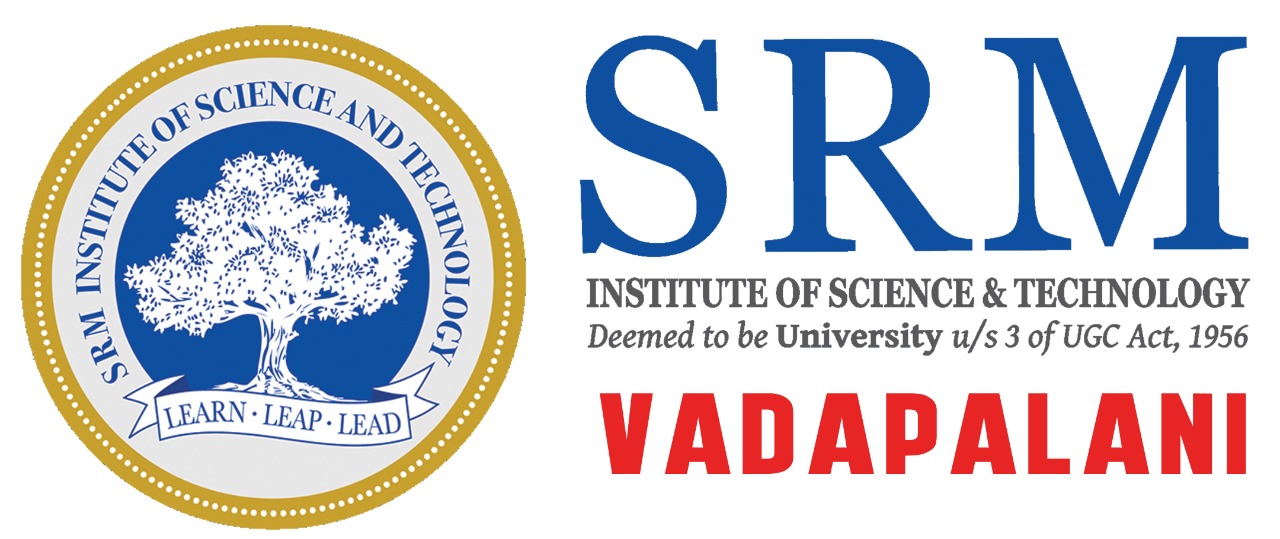- Home
- About
About Us
Global Connections
- Colleges @ SRMIST VDP
- Admissions
- Academics
- FACULTY OF ENGINEERING & TECHNOLOGY
- FACULTY OF MANAGEMENT
- FACULTY OF SCIENCE & HUMANITIES
- Department of Commerce
- Department of Commerce (A & F)
- Department of Commerce (Honours) (IAF)
- Department of Computer Science & Applications
- Department of English
- Department of Hotel & Catering Management
- Department of Mathematics
- Department of Psychology
- Department of Languages
- Department of Visual Communication
Academics
Faculty of Engineering & TechnologyFaculty of Science & Humanities
- Placements
- Research
- Campus Life
- IQAC
- Exam Cell
- More
Academics

Academics

- Home
- About
About Us
Global Connections
- Colleges @ SRMIST VDP
- Admissions
- Academics
- FACULTY OF ENGINEERING & TECHNOLOGY
- FACULTY OF MANAGEMENT
- FACULTY OF SCIENCE & HUMANITIES
- Department of Commerce
- Department of Commerce (A & F)
- Department of Commerce (Honours) (IAF)
- Department of Computer Science & Applications
- Department of English
- Department of Hotel & Catering Management
- Department of Mathematics
- Department of Psychology
- Department of Languages
- Department of Visual Communication
Academics
Faculty of Engineering & TechnologyFaculty of Science & Humanities
- Placements
- Research
- Campus Life
- IQAC
- Exam Cell
- More
Academics

Academics

Menu
- Home
- About
About Us
Global Connections
- Colleges @ SRMIST VDP
- Admissions
- Academics
- FACULTY OF ENGINEERING & TECHNOLOGY
- FACULTY OF MANAGEMENT
- FACULTY OF SCIENCE & HUMANITIES
- Department of Commerce
- Department of Commerce (A & F)
- Department of Commerce (Honours) (IAF)
- Department of Computer Science & Applications
- Department of English
- Department of Hotel & Catering Management
- Department of Mathematics
- Department of Psychology
- Department of Languages
- Department of Visual Communication
Academics
Faculty of Engineering & TechnologyFaculty of Science & Humanities
- Placements
- Research
- Campus Life
- IQAC
- Exam Cell
- More
Academics

Academics







